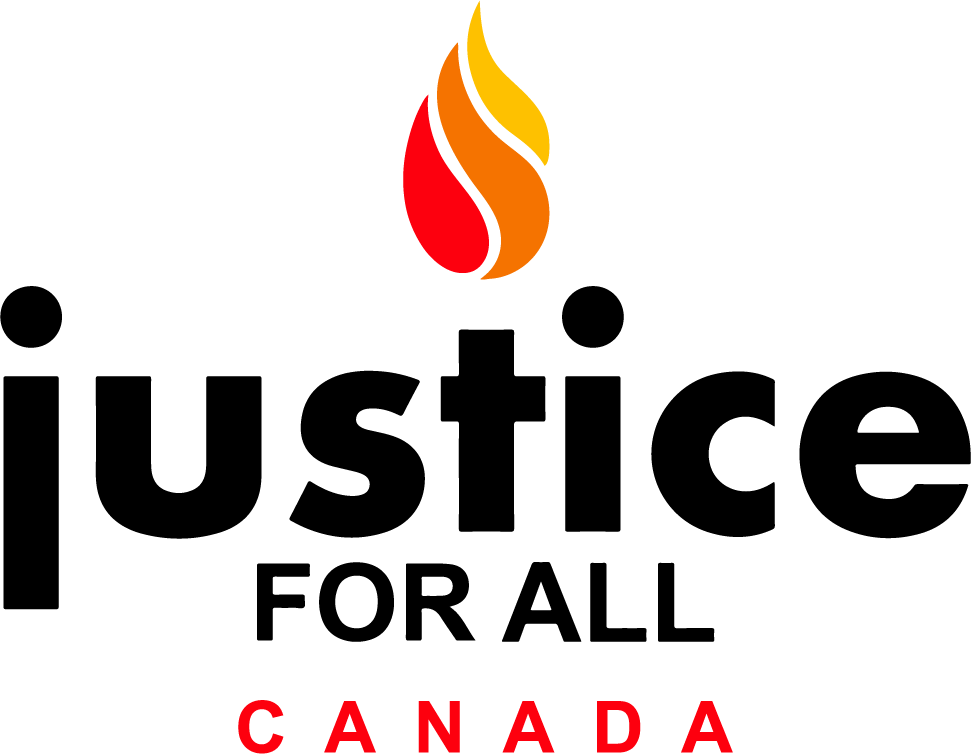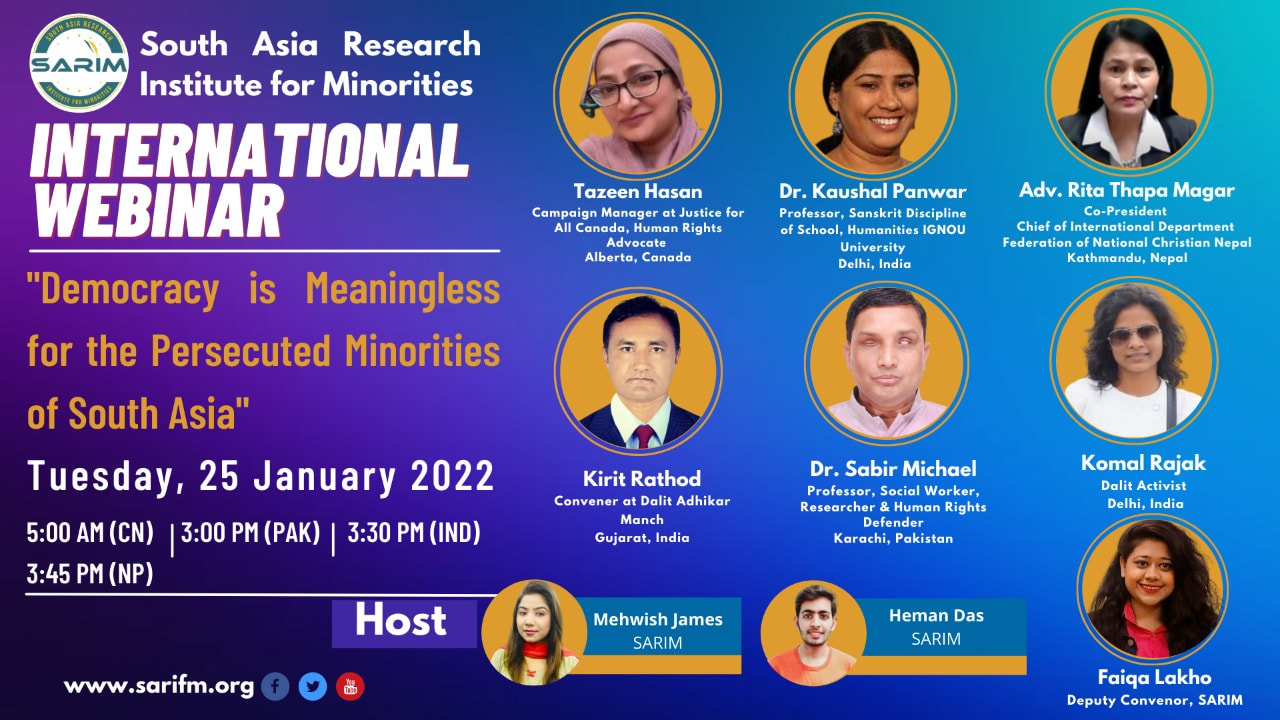Democracy for South Asian Minorities Panel Discussion, organized by SARIMBy Tazeen Hasan
Last month, I was honoured to share a panel with scholars from India, Nepal, Sri Lanka, and Pakistan that was organized by thinktank South Asian Research Institute for Minorities (SARIM). The webinar was titled "Democracy is Meaningless for Minorities in South Asia”. The topic reminded me of a graduate course titled 'Democracy and its Discontents' at Harvard Kennedy School in Spring 2019. The course was about the apparent failure of democracy as a system after the end of the cold war. Interestingly, this was one of two courses I attended during my graduate program that changed my worldview in support of democracy and democratic values. In the beginning of the course, we were introduced to several articles by renowned political scientists about the disappointments that the democratic world is facing in the aftermath of the cold war. And finally, we were given an assignment to write about the most significant threat to democracy in the 21st Century. I have been writing about the immigrant crisis since 2014 and the anti-immigrant politics that dominated the western world. The choice for threats to democracy was obvious. On the other hand, as a daughter of immigrant parents from India, I had observed the anti-Muslim Hindutva politics in India very closely. Today's most significant threat to democracy in India is right-wing populism based on racial supremacy and religious extremism. This has ultimately led to fascism and neo-nazism in the region. From India to Germany, right-wing populism is rising in countries considered “liberal democracies”. These populists are driven by anti-immigrant sentiments, mainly against Muslim immigrants in the western hemisphere. In India, this populism is primarily based on religious extremism and directly attacks Muslim minorities without any disguise. The general political scenario is mired with Islamophobia:
Right-wing religious extremism is no doubt rising in every region of the world. Still, nowhere is it as vivid and brutal as in India, which is considered the largest “democracy” in the world. Those Hindutva leaders belonging to the Sangh Parivar, associated with the ruling BJP party, openly call for a Muslim genocide. Hindutva Nationalism and Vigilantes in India Scores of Muslims and Dalits have been lynched by Hindutva mobs on the accusation of cow meat consumption. Minorities, particularly Muslims, have a disproportionate share among the inmates in the prisons. Hindutva mobs have attacked Christian churches. Peaceful Sikh protestors are considered terrorists by Hindutva supporters. The Dalits are being thrashed publicly. The BJP government has not only granted impunity to these Hindutva groups but has also sanctioned them directly. Amnesty International, one of the most prominent human rights groups, has been forced to shut down its operation by the government of India. The monitoring staff of United States Religious freedom USCIRF are denied visas. Moreover, for decades, India has denied United Nations observers access to Indian-administered Kashmir since decades. In 2019, after the revocation of Kashmir's autonomous status, the U.N. staff, U.S. diplomats, and any other foreign observer were denied access to Kashmir. One doesn't need to be a geopolitical expert to realize what India is trying to hide behind the portal of a peaceful, tolerant, and pluralistic democracy. Indian diplomats, advocates, Bollywood have successfully portrayed itself as a nation built upon the Gandhian ideology of nonviolence and coexistence. The reality is with every passing day; it is becoming more and more difficult for minorities to survive in India. Here comes an interesting dilemma: if democracy is not failing, why is it meaningless or irrelevant for minorities of the largest democracy in the world? Why is it happening in the so-called largest democracy in the world? To answer this question, we will have to reconsider the definition of democracy. Is 21st century India a democracy? Do the regime and society follow democratic norms, or do they possess essential ingredients of democracy? Democracy is the rule of people, by the people, for the people. The Kennedy School course made me realize that this system has many flaws and loopholes; some are non-rectifiable. Even with all its weaknesses and shortcomings, I’ve learned democracy is still the best political system man has ever experimented with. Democratic Truths Democracy is considered the rule of the majority by default, which allows tyranny of the majority. In reality, the electoral system that enables the tyranny of the majority is not democracy but majoritarianism. On the other hand, constitutional democracy does protect the fundamental rights and freedoms of everyone, including minorities. Besides a transparent electoral system, a democratic system has some crucial ingredients: The rule of law, such as independent courts, which provide guarantees for:
When I look at the post-colonial history of India, I feel deep respect for the secular vision of Jawahar Lal Nehru and B.R. Ambedkar. Unfortunately, 21st century Modi's India is not based on Nehru's vision. Instead, it reflects A. D Savarkar's ideology of Hindutva.* It is not democracy that is irrelevant or meaningless, but the lack of the rule of law and respect for constitutional protection, that leads to the persecution of minorities. *A disclaimer is necessary here. Hindutva and Hinduism are not the same. While Hinduism is a religion with thousands of years of coexistence with other religions and ideologies, Hindutva is an extreme right-wing ideology. Hindutva claims India belongs to Hindus only, and that other religious groups should either assimilate themselves in Hindu culture, or accept second-class status and face the tyranny of the majority. |

